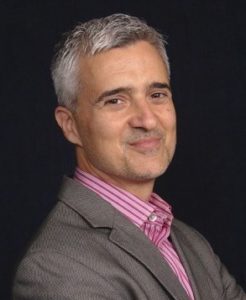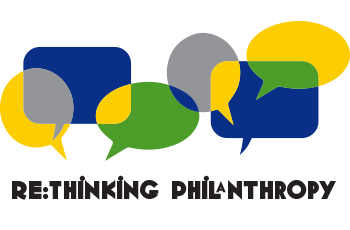Millions of New Yorkers struggle every month to pay their energy bills. Energy is a sizeable component of housing costs, and many residents live in inefficient homes where energy alone consumes 10% or more of their income.
Fortunately, clean energy solutions can drive down energy costs while making homes more comfortable and healthy for residents. The New York State Energy Research and Development Authority (NYSERDA) is advancing initiatives across the State to build a clean energy economy. However, NYSERDA’s expertise is energy innovation; we’re less equipped to solve complex social problems beyond lowering carbon emissions. That’s why we seek strong partnerships with philanthropic organizations focused on building equity and resilience for local communities.
Can your foundation help communities access affordable, clean energy?
Your participation in a public-philanthropic partnership could support your longstanding efforts to ensure safe, affordable housing in low-income communities. Here are some ways to collaborate with NYSERDA.
Healthy Homes is a proven model to achieve measurable health, economic, and environmental benefits through investment in low-income housing. In Buffalo and other cities, nonprofits have combined public and private funds to make life-changing retrofits to individual homes that have lowered energy costs for residents by $404 per year while reducing asthma-related hospitalization by 66%. Building upon these local efforts and with your foundation’s help, New York can become the first state with a comprehensive strategy to address energy and health needs by improving the performance of low-income housing. Join us on June 20 in Buffalo for an event with the Community Foundation for Greater Buffalo and help build an alliance for healthy homes in New York State.
EmPower NY is a NYSERDA program investing in energy efficiency and resiliency to reduce the energy bills of low income New Yorkers. In 2017, NYSERDA anticipates serving approximately 14,000 homes through EmPower NY, saving an annual average of $300. But the need is far greater. Moreover, many low-income homes have structural deficiencies that prevent the installation of energy efficiency upgrades. Through partnerships with philanthropies, we can overcome these barriers and serve more homes and communities.
Affordable Solar expands access to solar energy for low-income households including renters and multifamily building residents in New York. NYSERDA’s Affordable Solar Technical Assistance Program will award $4.4 million to community development organizations, housing providers, and other organizations to help their communities install solar. Philanthropic partnership can accelerate access to solar energy for families, houses of worship, and neighborhoods throughout the state.
Zero Energy Modular homes can lower the cost of living for residents of mobile and manufactured housing. Over 20% of households in some New York counties live in mobile homes; many of these units are in a poor state of repair and waste significant amounts of energy. In Vermont, zero energy modular homes eliminate energy bills while providing a comfortable, healthy, and cost-effective place for low-income residents to live. Together with New York State Homes and Community Renewal and local partners, we’re exploring opportunities to expand access to zero energy modular homes to New York communities.
Our State is committed to clean, resilient, and more affordable energy for all New Yorkers. Through public-philanthropic partnerships, we can expand the benefits of the clean energy economy to all. Join us by emailing John Scicchitano at partnerships@nyserda.ny.gov.
About the Author
 John Scicchitano is the Director of Philanthropic Partnership at NYSERDA. In this capacity, John promotes synergy between the ambitious energy investments of New York State, and the longstanding efforts of philanthropy. John previously served in an appointment at the United States Department of Agriculture, managing global hunger activities in the Office of Food for Peace. He has also served at USAID in the Bureau of Democracy, Conflict, and Humanitarian Assistance, in the Office of U.S. Foreign Disaster Assistance, and with the non-profit organizations World Vision, World Relief and the International Rescue Committee. Over 15 years of his career were spent in Africa in Burkina Faso, Chad, Senegal, Burundi, Rwanda, and Kenya. Prior to his international assignments, John worked as an Environmental Engineer with the global consulting firm Environ. John has an Executive Masters in Leadership from the Georgetown University McDonough School of Business and a B.S.E. in Civil Engineering and Operations Research from Princeton University. He is also recognized by the United Nations Roster of Experts for the following domains: participatory planning, community development, partnership among stakeholders and policies and strategies.
John Scicchitano is the Director of Philanthropic Partnership at NYSERDA. In this capacity, John promotes synergy between the ambitious energy investments of New York State, and the longstanding efforts of philanthropy. John previously served in an appointment at the United States Department of Agriculture, managing global hunger activities in the Office of Food for Peace. He has also served at USAID in the Bureau of Democracy, Conflict, and Humanitarian Assistance, in the Office of U.S. Foreign Disaster Assistance, and with the non-profit organizations World Vision, World Relief and the International Rescue Committee. Over 15 years of his career were spent in Africa in Burkina Faso, Chad, Senegal, Burundi, Rwanda, and Kenya. Prior to his international assignments, John worked as an Environmental Engineer with the global consulting firm Environ. John has an Executive Masters in Leadership from the Georgetown University McDonough School of Business and a B.S.E. in Civil Engineering and Operations Research from Princeton University. He is also recognized by the United Nations Roster of Experts for the following domains: participatory planning, community development, partnership among stakeholders and policies and strategies.


Post a comment